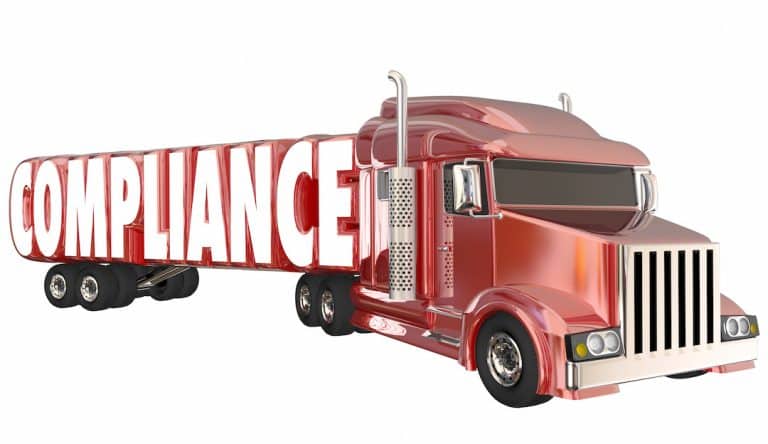Motor carriers whose drivers are required to have CDLs must have a drug and alcohol testing program.
Motor carriers operating vehicles requiring a CDL must test drivers for illegal substances and alcohol levels at various points of employment:
- Before they are hired (pre-employment screening)
- After an accident
- When there is reasonable suspicion
- At return to duty after a controlled substances or alcohol violation
- Through a random testing process either by implementing a random program or joining a consortium. Motor carriers with one driver must join a consortium.
Employers are required to keep detailed records of their alcohol misuse prevention programs and store them in a secured location for the amount of time defined in FMCSR Section 382.401, Records Retention. Motor carriers may self-administer their programs (if they are not owner-operators) or contract it out, such as to a consortium that provides drug-testing services to many carriers. Owner-operators cannot self-administer their programs and must enroll in a consortium. Guidance for setting up a program for non-owner-operator carriers can be found in FMCSA’s Overview of Drug and Alcohol Rules.
When hiring drivers, employers are required to conduct a query of the FMCSA Drug and Alcohol Clearinghouse (Clearinghouse) to check that the driver is not prohibited from performing safety-sensitive functions, including operating a CMV, due to a drug and alcohol program violation. If an employer becomes aware of a drug and alcohol program violation incurred by one of their employees, the employer must report the violation in the Clearinghouse; violations include positive drug or alcohol test results, refusal to take an alcohol or drug test, or actual knowledge of a violation. Owner-operators must select a consortium/third-party administrator (C/TPA) and designate their C/TPA in the Clearinghouse, as C/TPAs are required to report any violations incurred by the owner-operator. Learn more about the Clearinghouse in the Clearinghouse Learning Center.
Assistance for FMCSA Clearinghouse is available from ClearinghouseServices.com a private company not affiliated with the United States Department of Transportation (DOT) or the Federal Motor Carrie Safety Administration (FMCSA).
For the purposes of a Safety Audit, the motor carrier is required to provide documentation showing that pre-employment tests are administered, that the carrier has a random testing procedure that aligns with the regulations (either entered into with a consortium or conducted by the carrier), and a list of all of the drivers entered into the random testing program. The motor carrier must also be registered in the Clearinghouse, and the employer or their designated C/TPA must have performed all required queries and reported any drug and alcohol program violation. If an owner-operator, they must have a designated a C/TPA in the Clearinghouse. Note that working with a C/TPA to help perform random selections does not meet this requirement; the owner-operator would still need to designate that C/TPA, or another C/TPA, in the Clearinghouse.
Expert C/TPA services are available from National Drug Screening.







